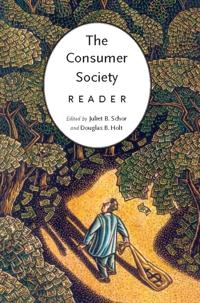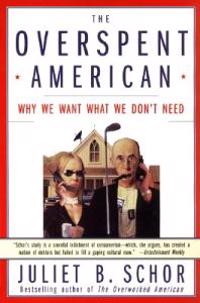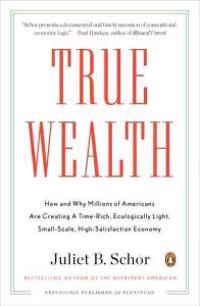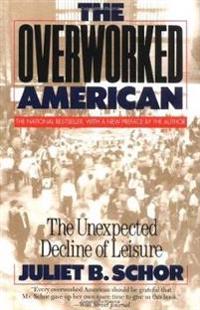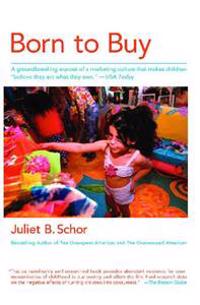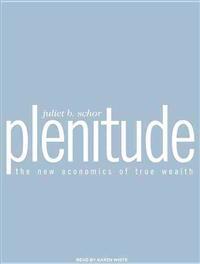The Consumer Society Reader (Pocket)
avJuliet Schor, D. B. Holt, Juliet Schor
ISBN: 9781565845985 - UTGIVEN: 200008The Overspent American: Why We Want What We Don't Need (Häftad)
avJuliet B. Schor
ISBN: 9780060977580 - UTGIVEN: 199904The Overspent American explores why so many of us feel materially dissatisfied, why we work staggeringly long hours and yet walk around with ever-present mental "wish lists" of things to buy or get, and why Americans save less than virtually anyone in the world. Unlike many experts, Harvard economis[...]
True Wealth: How and Why Millions of Americans Are Creating a Time-Rich, Ecologically Light, Small-Scale, High-Satisfaction Economy (Häftad)
avJuliet B. Schor
ISBN: 9780143119425 - UTGIVEN: 201108A groundbreaking statement about ecological decline, suggesting a radical change in how we think about consumer goods, value, and ways to live. In "True Wealth," economist Juliet B. Schor rejects the sacrifice message, with the insight that social innovations and new technology can simultaneously en[...]
Overworked American (Pocket)
avJuliet B. Schor
ISBN: 9780465054343 - UTGIVEN: 1993-03Argues that Americans work more than they used to, and more than Europeans, due to the preference of employers for longer hours, fear of unemployment, the undervaluing of household work, and the desire for consumer goods[...]
Born to Buy (Häftad)
avJuliet B. Schor
ISBN: 9780684870564 - UTGIVEN: 2006-01Ads targeted at kids are virtually everywhere - in classrooms and textbooks, on the Internet, even at Girl Scout meetings, slumber parties, and the playground. Product placement and other innovations have introduced more subtle advertising to movies and television. Drawing on her own survey research[...]
Plenitude: The New Economics of True Wealth (Övrigt)
avJuliet B. Schor
ISBN: 9781400167333 - UTGIVEN: 201005In Plenitude, economist and bestselling author Juliet B. Schor offers a groundbreaking intellectual statement about the economics and sociology of ecological decline, suggesting a radical change in how we think about consumer goods, value, and ways to live.Humans are degrading the planet far faster [...]

